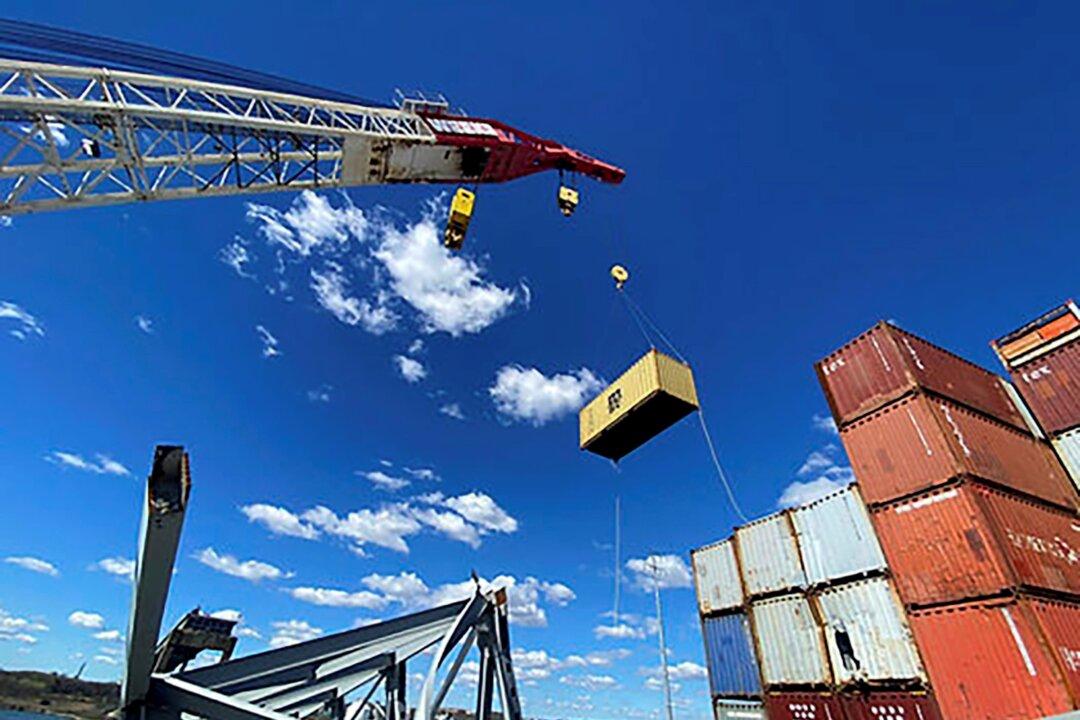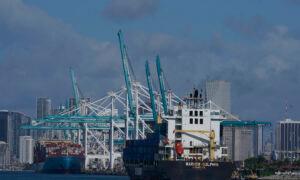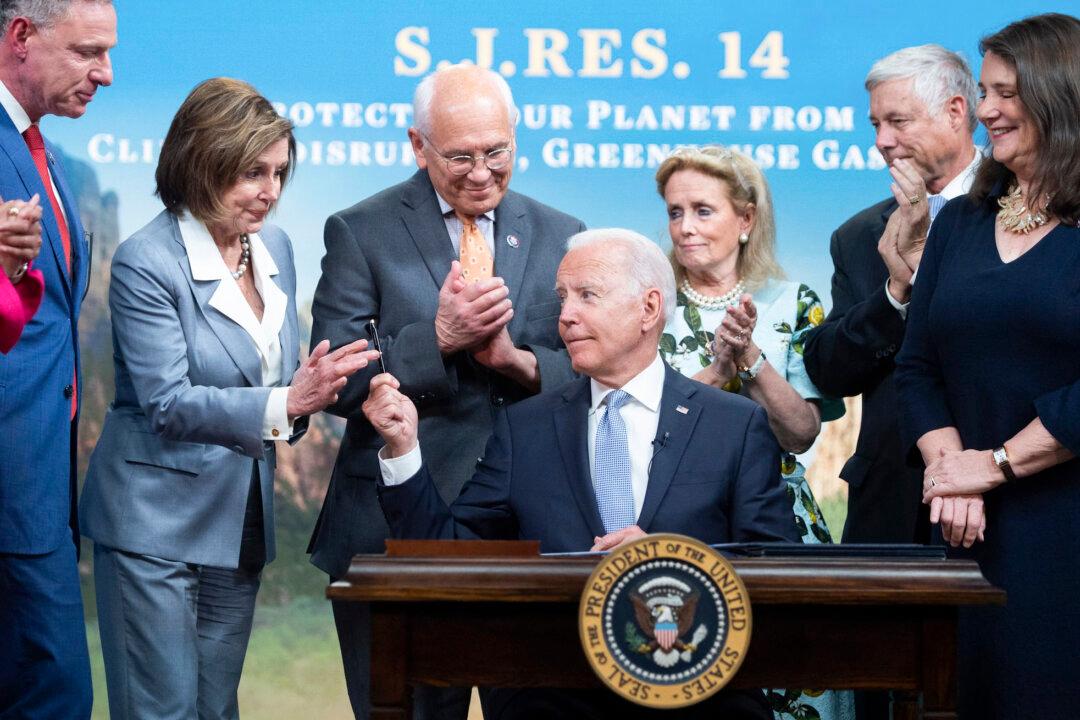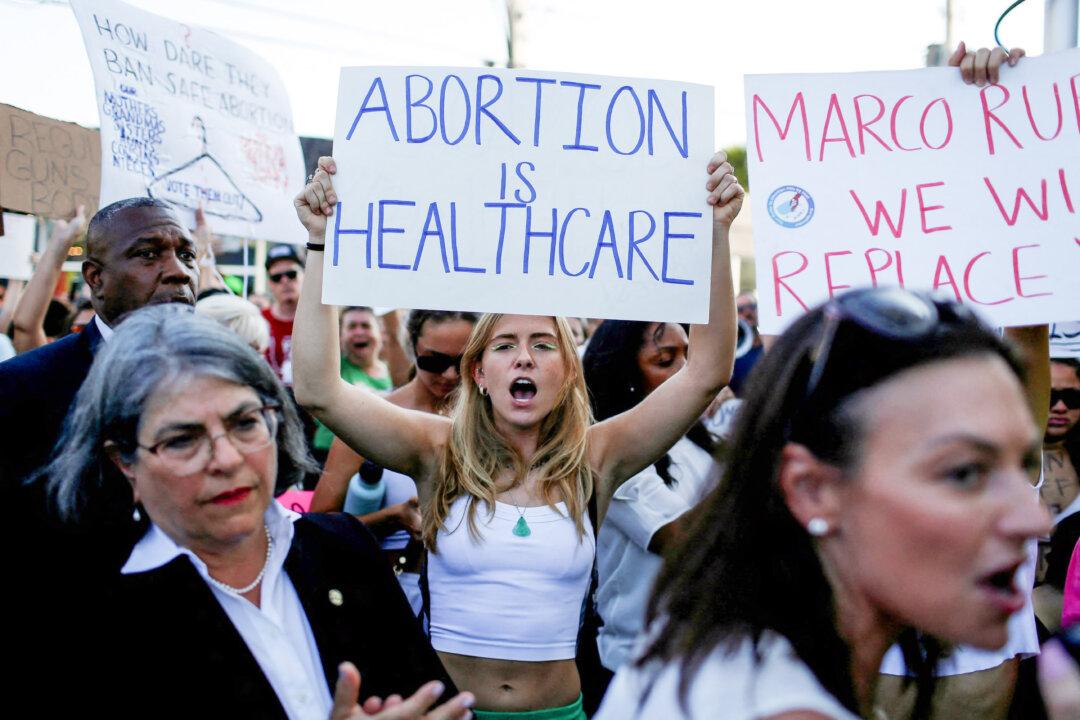Maryland’s congressional delegation’s proposed bill authorizing the federal government to waive emergency cost-share statutes to fully fund rebuilding Baltimore’s Francis Scott Key Bridge is raising concerns about increasing demands on decreasing resources in the nation’s emergency reserve funds.
Rep. Kweisi Mfume (D-Md.) is the lead sponsor of the measure’s House companion. Cosponsors are the state’s other seven congressional reps—Democrats Steny Hoyer, Dutch Ruppersberger, John Sarbanes, Jamie Raskin, David Trone, Glenn Ivey, and Republican Andy Harris.
The bill would amend the federal cost-share requirement for assistance from the Federal Highway Administration (FHWA) Emergency Relief Program’s disaster-damaged highways and bridges fund.
Under existing law, federal emergency highway funding is capped at 80 percent of accrued costs, with some federal/state cost-shares up to 90 percent. The FHWA emergency fund, capped at $100 million per year in “new” funding, has about $890 million right now with a $2.1 billion backlog, according to the U.S. Department of Transportation (DOT).
“Reopening the Port of Baltimore and rebuilding the Francis Scott Key Bridge as fast as possible is in the interest of every American.” Mr. Hoyer said in a statement. “That’s why it is crucial that we pass this legislation to authorize the federal government to cover the full cost of this project, in accordance with the commitment that the Biden-Harris Administration made immediately after the collapse.
“This bill is an essential first step in the rebuilding process,” he added. “To vote against this legislation is to vote against the success of the American economy and the American people.”
If adopted as proposed, DOT and Maryland officials estimate that an initial request for Key Bridge funding could top $1 billion from an account that already has twice as much in backlogged claims as it does in money.
Since 2011, Congress has appropriated $11.5 billion for FHWA’s emergency fund. Its annual $100 million appropriation was bolstered by an $800 million Fiscal Year 2022 (FY22) replenishment, according to the Congressional Research Service.
There is less than $900 million in it and more than $2.1 billion in backlogged compensation requests, some decades old.
Since January 2022, FHWA has distributed more than $1.3 billion in emergency relief to states for emergency transportation infrastructure relief.
In FY23, FHWA allocated more than $700 million to 34 states, the District of Columbia, the U.S. Virgin Islands, and Puerto Rico. The money was used for state and local government expenses related to the 2022 flooding in Yellowstone Park in Wyoming, hurricanes in Florida, and mudslides in Vermont. Florida received $223 million and California $124 million.
Although there is precedent for the federal government footing total up-front costs in rebuilding after disasters, the proposed bill would put Maryland at the front of a long line. There are literally hundreds of emergency funding requests from states collectively totaling more than $2.1 billion, some more than a decade old, waiting to be approved.
Tennessee has a pending $61.8 million claim filed in 2019. Puerto Rico is seeking $123 million from 2019 fires and storms. Hawaii, which has a $3.7 million claim pending from 2012, is seeking at least $77.7 million for recovery from the 2023 Maui wildfire.
Rep. Mike Quigley (D-Ill.), a former House Appropriations Transportation Subcommittee chair who is now the panel’s lead Democrat, has told multiple media outlets, including The Washington Post, that the $890 million now sitting in the fund needs to be “tripled, quadrupled” or it won’t matter if the ‘Baltimore BRIDGE Act’ passes.
Sen. Brian Schatz (D-Hawaii), noting that Maui remains a disaster zone after last August’s devastating wildfire left 101 dead and caused an estimated $5.5 billion in damage, is among those calling for the bill to be immediately adopted.
“We also have a responsibility to support every other community that has been devastated by a disaster because we are all in this together. No state or county, big or small, red or blue, wealthy or not, can shoulder the burden alone,” he said April 10 on the Senate floor. “When a disaster is so big, so catastrophic for any one state or locality to handle, it falls on the federal government to step up and help.”
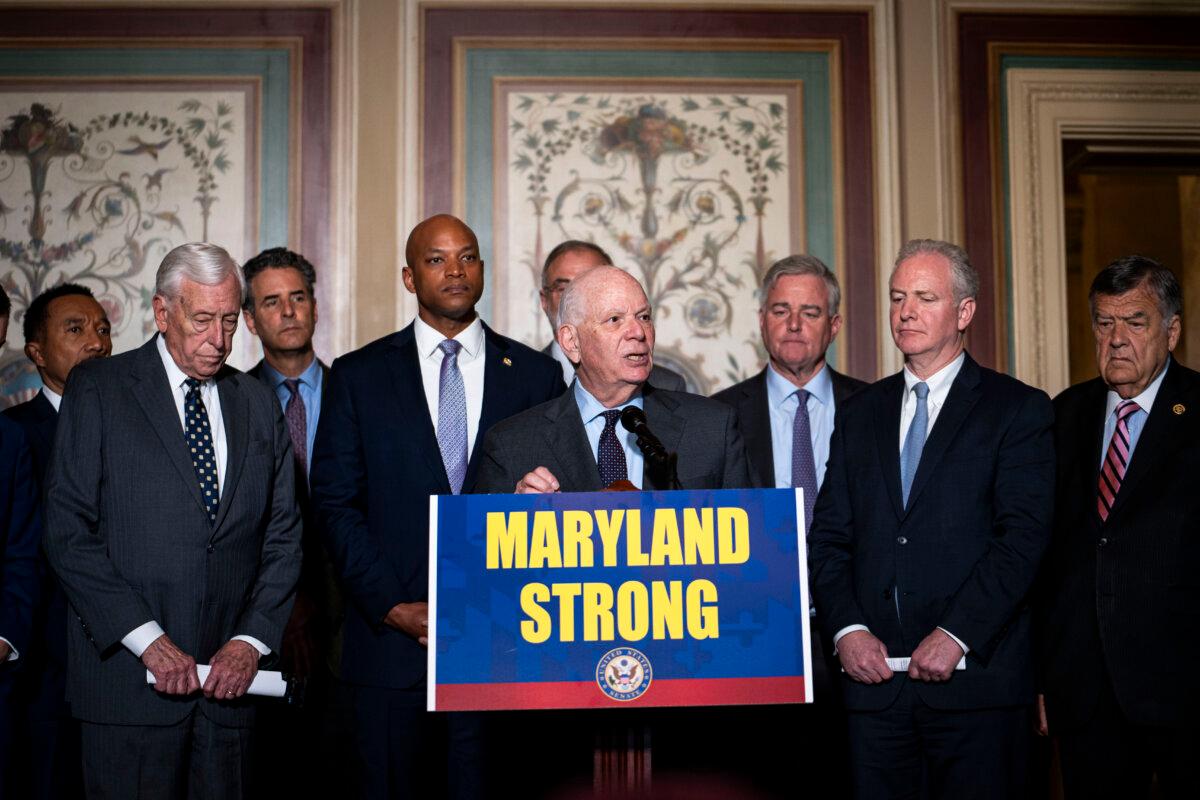
Other Funding Sources, Concessions
While Senate Republicans have expressed support for the Maryland measure, there is resistance in the House, where some fiscal hawks are concerned about the precedent the ‘Baltimore BRIDGE Act’ could set, and others about its budget impact.“It’s important that (1) we first seek maximum liability from the foreign shipping companies upfront, and (2) the Port of Baltimore draws upon already available federal funds,” the caucus stated.
The Freedom Caucus also said that in exchange for its support, President Biden must lift his Jan. 26 “temporary pause” on LNG export permits.
“If it proves necessary to appropriate taxpayer money to get one of America’s busiest ports back online, Congress should ensure it is fully offset and that burdensome regulations (such as NEPA, the Endangered Species Act, the Davis Bacon Act, project labor agreements, etc.) are waived to avoid all unnecessary delays and costs,” it said, calling for assurances the money is spent only on “physical structure repairs” and not on unrelated projects.
Several House Republicans, such as Rep. Jeff Duncan (R-S.C.), in committee hearings in Miami and Port Arthur, Texas, said they know a good place to search for “available federal funds” that could be diverted to the bridge rebuild: the $1.2 trillion in infrastructure allocations authorized under 2021’s Bipartisan Infrastructure Law (BIL) and 2022’s Inflation Reduction Act (IRA).
Between $5 billion and $6 billion in BIL money is already earmarked for Maryland, according to the Maryland Department of Transportation.
There will be time to sift through programs for money and recoup upfront costs in liability lawsuits later, but first things first, Andy Harris, the state’s only congressional Republican, told reporters on April 11.
“This legislation is a step in the right direction,” he said. “It will provide Maryland with the resources necessary to reopen the channel, rebuild the bridge, and hold any party responsible for reimbursing the federal government if found negligent.”
